GYN-3 Harmonisierer
GYN-3 Harmonisierer
ab 24,77 €
0,00 € / 1000 g
Preise inkl. MwSt.
Bei Endometriose assoziierte Symptome, Kinderwunsch, Nervosität, Menstruationsstörungen, prämenstruelles Syndrom, Unruhe, Reizbarkeit
Ab einem Einkaufswert von 40,00€, ist der Versand kostenlos
Lieferzeit 1-3 Tage
Rezeptur des umherstreifenden Wanderers
Xiao Yao San
Inhaltsstoffe/Woche
9,55 g Atractylodis macro. Rhizoma
9,55 g Angelicae sinensis Radix
3,66 g Bupleuri Radix
3,15 g Paeoniae Radix alba
2,68 g Glycyrrhiziae Radix Tosta
2,20 g Poria alba (cocos)
1,63 g Zingiberis Rhizoma
0,81 g Menthae Herba
Indikationen
– Erschöpfung
– Kinderwunsch
– Menstruationsstörungen
– löst innere Unruhe und Anspannung
– lindert Reizbarkeit
– minimiert prämenstruelles Syndrom
– minimiert das Prä- und Post-Menopausensyndrom
*In Ergänzung zu primär schulmedizinisch zu behandelnden Erkrankungen.
mögliche Begleitsymptome
– Rasche Ermüdung
– Schulter-Nacken-Verspannungen
– Kopfschmerzen
– Schwindel
– Schmerzen am ganzen Körper
Dosierung
– Tagesdosis 4,73g
– aufgeteilt in 2 Einnahmen /Tag ≙ 2x tgl. 2,37g
– jede Dosis mit ca. 300 ml heißem Wasser aufgießen und nach den Mahlzeiten heiß trinken
Anwendungsdauer
– mindestens 4 Wochen
– nicht als Dauermedikation gedacht
mögliche Nebenwirkungen
– Meteorismus
– Diarrhoe
– Übelkeit und Erbrechen
– epigastrische Beschwerden
– Bauchschmerzen
– allergische Hautreaktion
Hinweise
– bei älteren Patienten wird die Reduzierung der Dosis empfohlen
– Einnahme in der Schwangerschaft und Stillzeit sind kontraindiziert
– Zur Anwendungssicherheit bei Kindern liegen noch keine Daten vor
Rezepturarzneimittel
Dieses Produkt ist apothekenpflichtig und wird in der Apotheke direkt nach Bestelleingang für Sie hergestellt und verschickt.
Zu Risiken und Nebenwirkungen fragen Sie Ihren Arzt oder Apotheker.
Forschungsarbeiten
doi: 10.1097/MD.0000000000015890. PMID: 31192922; PMCID: PMC6587642.
doi: 10.3390/jcm7070179. PMID: 30037150; PMCID: PMC6069244.
doi: 10.1186/s12906-017-1939-1. PMID: 28851349; PMCID: PMC5576320.
doi: 10.1186/1472-6882-14-206. PMID: 24969368; PMCID: PMC4099402.
doi: 10.1111/j.1447-0756.2012.01936.x. Epub 2012 Jul 6. PMID: 22765925.
doi: 10.1097/gme.0b013e3181e5063c. PMID: 20647958.
doi: 10.1016/j.maturitas.2008.12.007. PMID: 19179025.
Schreiben Sie die erste Bewertung für „GYN-3 Harmonisierer“
Unsere Bestsellers
Frauenheilkunde
Preise inkl. MwSt. Bei Energielosigkeit, Gefühl der Eiseskälte, Lustlosigkeit, Trägheit, leichte depressive Verstimmungen, Harndrang Ab einem Einkaufswert von 40,00€, ist der Versand kostenlos Lieferzeit 1-3 Tage verschreibungspflichtige Alternative
Dieses Produkt weist mehrere Varianten auf. Die Optionen können auf der Produktseite gewählt werdenSehstörung
Preise inkl. MwSt.
bei Sehstörungen, verschwommenes Sehen, Abnahme des Sehvermögens, Glaukom, Bindehautentzündung und schmerzhafte Augen
Ab einem Einkaufswert von 40,00€, ist der Versand kostenlos!
Lieferzeit 1-3 Tage
Stresskrankheiten
Preise inkl. MwSt.
Bei stressbedingten Tinnitus, Bluthochdruck, Schlafstörungen, Schwindel, Kopfschmerzen und Unruhe
Ab einem Einkaufswert von 40,00€, ist der Versand kostenlos!
Lieferzeit 1-3 Tage
Atemwegserkrankung
Preise inkl. MwSt.
Bei akuter und chronischer Rhinitis und Sinusitis, Polypen, verstopfte Nase, Verlust des Geruchssinn
Ab einem Einkaufswert von 40,00€, ist der Versand kostenlos
Lieferzeit 1-3 Tage

Kontakt
Haben Sie noch Fragen?
Wir helfen Ihnen gerne weiter!

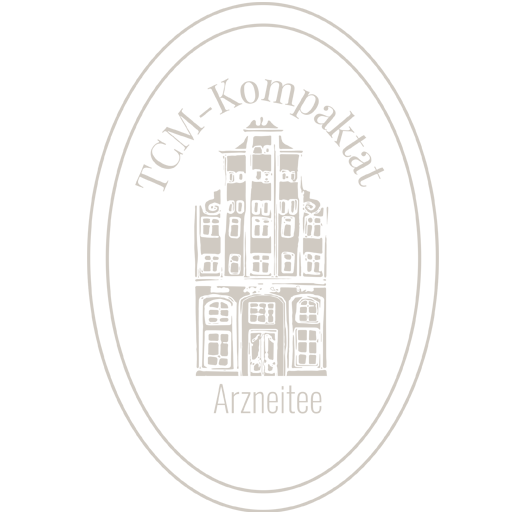


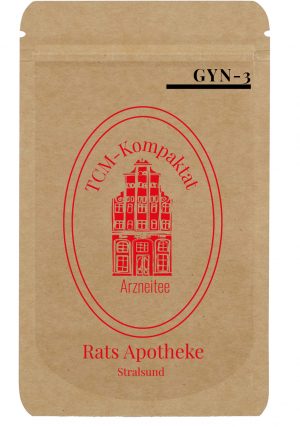
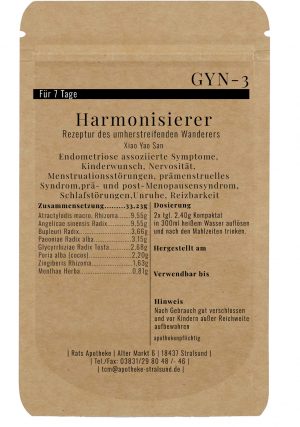
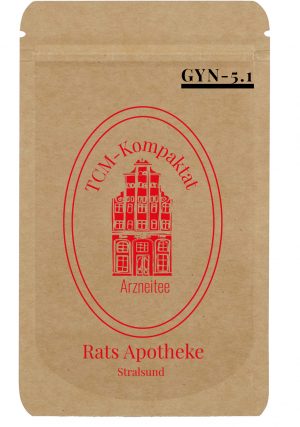
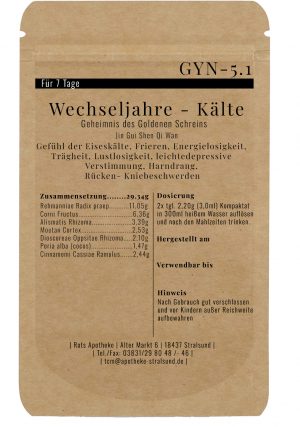
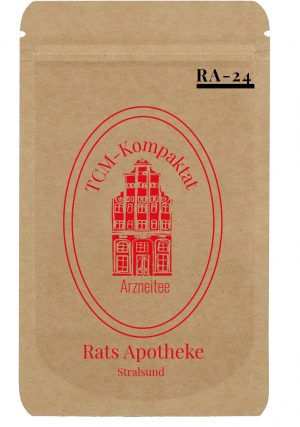
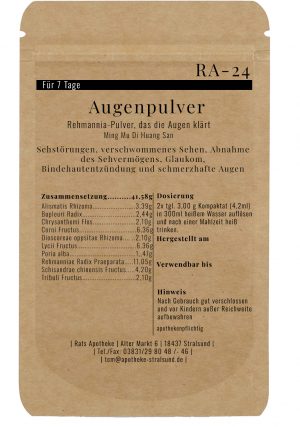
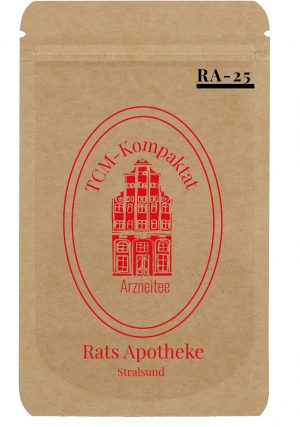
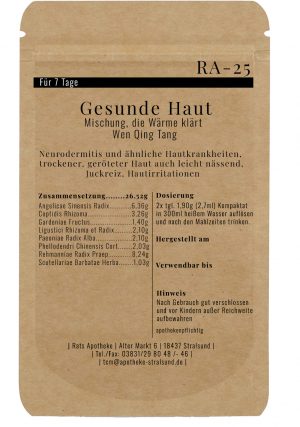
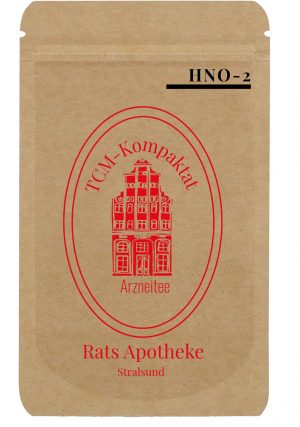
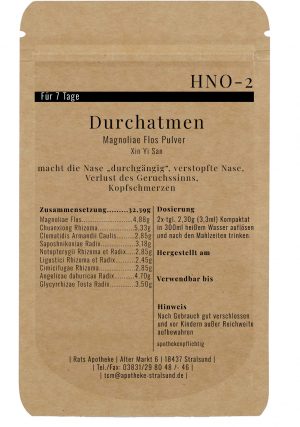
Bewertungen
Es gibt noch keine Bewertungen.